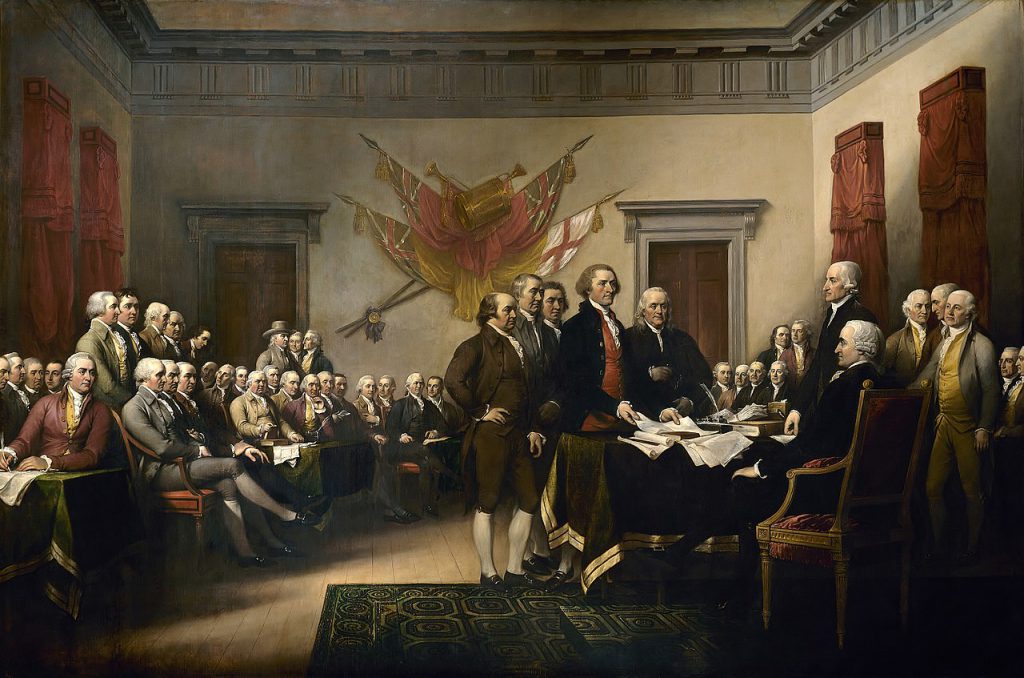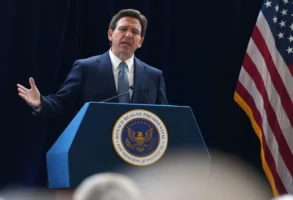
Published November 2, 2020
This afternoon President Trump signed an “Executive Order Establishing the President’s Advisory 1776 Commission.” The order marks an important step in Trump’s efforts to foster patriotic education.
The text is longer and more substantive than typical presidential EOs. It offers sharp criticisms of current educational trends, a definition and explanation of patriotic education, as well as a vision for how to realize it. Following Trump’s remarks at the White House Conference on American History, the president was criticized by some on the left both for favoring a simplistic view of patriotism and for trying to force a curriculum on schools in violation of local control. This EO refutes both criticisms.
Trump’s EO does offer strong criticisms of “polemics grounded in poor scholarship” that vilify “our Founders and our founding.” The president evidently has Howard Zinn and the 1619 Project in mind. “Despite the virtues and accomplishments of this Nation, many students are now taught in school to hate their own country, and to believe that the men and women who built it were not heroes, but rather villains,” the EO continues. The order rakes this approach over the coals for a time, then says, “Failing to identify, challenge, and correct this distorted perspective could fray and ultimately erase the bonds that knit our country and culture together.”
The critical tone then shifts as the order goes on to make a number of positive points. Grappling directly with the issue of race, the EO highlights a legacy too often ignored: “our country’s valiant and successful effort to shake off the curse of slavery and to use the lessons of that struggle to guide our work toward equal rights for all citizens in the present.” The 1619 Project falsely excludes Americans of all races from the struggle for liberty. Trump’s EO, in contrast, emphasizes our shared striving: “Viewing America as an irredeemably and systemically racist country cannot account for the extraordinary role of the great heroes of the American movement against slavery and for civil rights — a great moral endeavor that, from Abraham Lincoln to Martin Luther King, Jr., was marked by religious fellowship, good will, generosity of heart, and emphasis on our shared principles, and an inclusive vision for the future.”
Throughout, Trump’s EO emphasizes the principles of America’s founding as the key to our history — above all God-given natural rights. The EO warns: “Without our common faith in the equal right of every individual American to life, liberty, and the pursuit of happiness, authoritarian visions of government and society could become increasingly alluring alternatives to self-government based on the consent of the people.” The rise of an anti-free-speech American radicalism on campus and beyond makes this principled warning all too timely. “Thus,” the EO continues, “it is necessary to provide America’s young people access to what is genuinely inspiring and unifying in our history, as well as to the lessons imparted by the American experience of overcoming great national challenges.” An “informed and honest patriotism is essential for a successful republic,” this part of the EO concludes.
Does President Trump intend to impose his vision of patriotic education on the nation? Clearly, he does not. On the contrary, the EO reaffirms the Trump administration’s opposition not only to the Common Core, but to “all efforts to have the Federal Government impose a national curriculum or national standards in education.”
How, then, to encourage patriotic education? Here the president calls on local communities to reassert control over the curriculum. The approach is clearly along the lines of the one I’ve described as the real message of Trump’s remarks at the White House Conference on American History. In those remarks, the president touted an NEH grant to American Achievement Testing (AAT), a group planning to design a new American history curriculum to challenge the troubling approaches now dominant in American education. Instructional materials such as those to be produced by AAT will give local school districts a real alternative to textbooks that downplay our founding principles and emphasize group grievance at the expense of our common national identity.
Trump’s EO also empowers the 1776 Commission to produce and publicly disseminate a report within a year. That report shall discuss “the core principles of the American founding and how these principles may be understood to further enjoyment of ‘the blessings of liberty’ and to promote our striving ‘to form a more perfect union.” In other words, the 1776 Commission, likely to be populated by some of America’s finest historians and scholars, will produce a report on the meaning of the Founding, on how American history can be understood as a struggle to realize our founding principles, and on how best to teach all this to the rising generation.
The model here seems to be something like the Kerner Commission Report, which became a best-selling book and stimulated a vigorous national conversation. The aim is thus not to impose a national curriculum, but to assemble some of our best scholars and have them make the case for what the EO calls, “an informed and honest patriotism,” and how to teach it. The report will enter our national debate alongside of and in contradistinction to offerings such as Howard Zinn and the 1619 Project. Meanwhile, groups such as AAT — under the direction of top-flight historians such as Wilfred McClay — will develop instructional materials that represent a true alternative, not only to Zinn and 1619, but to the radical — and radically boring — textbooks that dominate America’s classrooms today.
In short, a movement of parents at the local level, inspired by the 1776 Commission Report and empowered by groups such as AAT, can restore an honest and informed patriotism without curricular imposition from above. That is what the president’s EO establishing the 1776 Commission promises. It is a very hopeful sign.
Stanley Kurtz is a senior fellow at the Ethics and Public Policy Center.





